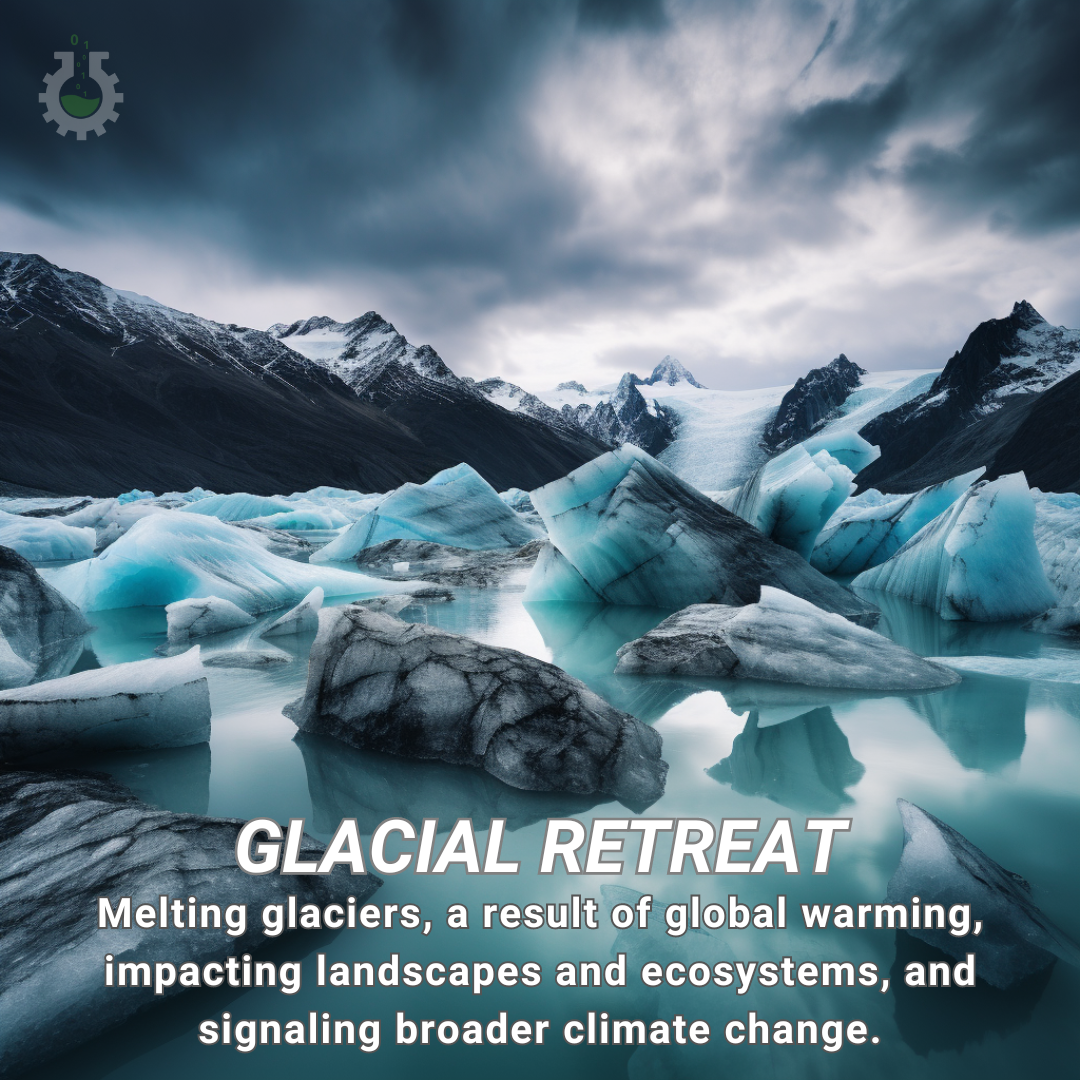February 1, 2024
Climate Change Poster Collection of the Day – Glacial Retreat
Book a Demo
Today’s Climate Change Poster Collection highlights Glacial retreat. Glaciers, the large masses of ice that gradually flow downhill, have been retreating since the mid-19th century. This phenomenon, which is likely caused by human-induced climate change, occurs when increased melting surpasses accumulation.
Interestingly, around 75% of the world’s freshwater supply is stored in ice. Most of this ice is located in Antarctica, followed by Greenland, with a small percentage found in alpine valley glaciers and ice fields. The balance of a glacier’s mass is determined by the equilibrium between snowfall accumulation and losses resulting from melting and evaporation. When a glacier experiences more melting, it thins and retreats. The long-term mass balance is dictated by the climate.
The melting and subsequent retreat of glaciers have a significant impact on our environment. One of the most notable effects is the rise in sea levels. When the terminal end of a glacier melts or fragments into icebergs, that water ultimately flows into the sea. This causes a rise in sea level due to the water loss from the retreating glacier exceeding the water gain.
Glaciers cover about 10% of the Earth’s total land area. They are primarily found in colder polar regions such as Antarctica and Greenland. However, they can also be found on almost every continent, usually above the snow line in mountainous or polar regions. Many people worldwide depend on the meltwater from these alpine glaciers for their drinking water. As these glaciers disappear, it could lead to water shortages and other crises.
A glacier is considered to be retreating when its endpoint doesn’t extend as far as it previously did. This is a result of the ice melting faster than new ice can form from snowfall. The retreat of glaciers is widely viewed as a sign of climate change.
The loss of glaciers due to global warming poses a significant threat. Glaciers provide freshwater for drinking and irrigation. If they recede too drastically, it will significantly reduce glacial meltwater. This would affect the water supply of a large number of people, posing yet another challenge in our struggle against climate change.
Discover an inspiring collection of climate change poster.



